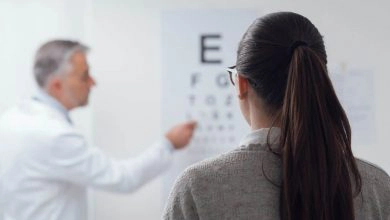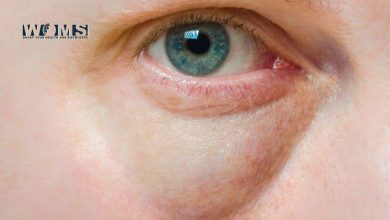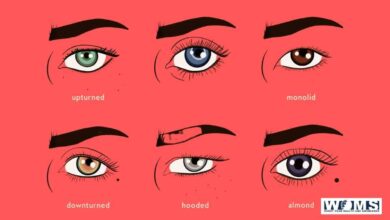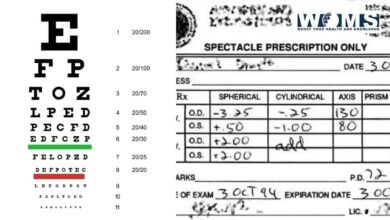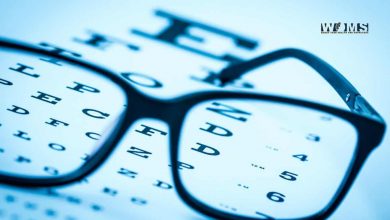How to Take Care of Your Eyes
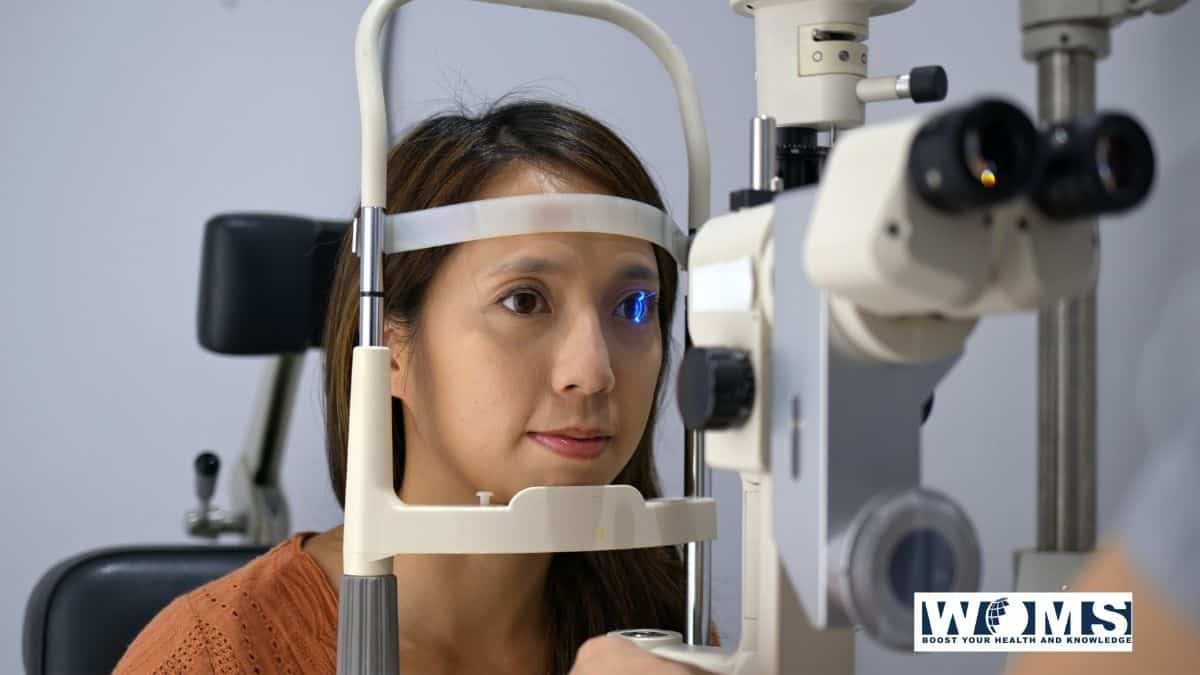
Your eyes are vital to your overall health. The majority of people use their eyes to view and understand the world around them. As a result, it’s natural to be curious “How to take care of your eyes”. These days many people are becoming health conscious. Eating well, being physically active, and avoiding unhealthy habits can even be called trendy nowadays. The most important thing you can do for your eyes is to get your ophthalmologist to perform an eye health screening. This will ensure that there are no conditions or diseases that your ophthalmologist didn’t catch. This can help prevent vision loss in the future.
However, in this digital age, people seem to forget about their self-care and health. Eye care can be easily neglected, and this can cause serious harm to anyone’s eyesight. Technology has made people spend more time on their devices without precautions. Moreover, the eyes are the ones who bear the brunt of the damage.
But it’s ridiculous to stop the development of technology for the sake of eye care. However, it’s more practical to know how to take care of your eyes. Just as consciousness about physical and mental health rises, eye care should follow, too.
Below are some tips to follow:
10 Tips on how to take care of your eyes
Take care not to take your sight for granted. To keep your eyes healthy, follow these simple measures.
1. Get an Eye Exam
The phrase “prevention is better than cure” may seem hackneyed, but it’s only because it’s true. When it comes to getting your eyes checked, you shouldn’t wait for any other symptoms. It’s necessary to get routine eye checkups from a professional eye care provider. The eye care provider renders essential services.
You mustn’t just go over the internet and try to diagnose any issues with your eyes. Only professional eye doctors can tell if there are any serious issues with your vision. However, they can give you the best advice and solutions to fit your specific needs.
2. Check Your Family History
Another way for you to care for your eyes is to know your family history. Perhaps you have relatives who have had bad eye prescriptions. And the issue may be hereditary. However, if you have this risk getting checked and talking to an eye care provider will be best. And detecting this early might play a massive role in saving your vision from worsening.
3. Know the Warning Signs
Just like diseases, eye problems have specific symptoms that you might experience. Some of these are obvious, such as blurreJust like diseases, eye problems have specific symptoms that you might experience. Some of these are obvious, such as blurred vision, but others might be inconspicuous. Here are some signs that you should look out for:
- Red and painful eye/s
- Double vision
- Difficulties identifying colors
- Struggling to see anything in your side vision
- Distorted images
- Blind spots
- Seeing halos around lights
- Partial vision loss
- Total vision loss
- Seeing a shade or a curtain that blocks your vision
- Injuries around your eyes
Go to an eye doctor immediately if you’re experiencing any of these issues with your eyesight.
4. Eat Well
Eating a balanced diet is an excellent way to get the nutrients that your body and eyes need. If you want to know which foods are terrific for the eyes, you can snack on this:
- Walnuts, almonds, and sunflower seeds
- Carrots, red bell peppers, sweet potatoes, and tomatoes
- Oranges, tangerines, lemons, and grapefruit
- Peaches, strawberries, and avocadoes
- Dairy products
- Broccoli, spinach, romaine lettuce, turnip greens, peas, kale, and collards
- Salmon, sardines, tuna, trout, and halibut
5. Get hydrated always
Staying hydrated is good for your health in general. It does wonders for your eyes too. Moisture in your eyes helps to clear out any dirt and debris. If your eyes are dry, they can get irritated quickly because they can’t clean themselves.
Furthermore, if you experience dryness on your lips, skin, and eyes, it only means you’re not drinking enough. So, it’s important to increase the amount of water that you consume every day. If you love coffee and soda, you’ll need to drink more water in addition to the daily prescribed glasses
6. Exercise Regularly
It might be strange to link physical exercise with eye health, but they’re directly related. Exercising regularly can help avoid cataracts, glaucoma, and macular degeneration due to age. Aerobics and other cardiovascular exercises are specifically great for eye health.
7. Wear UV Protection Sunglasses
Ultraviolet radiation might be invisible, but its effects can be terrible on your skin and eyes. Choose UV protection sunglasses that can block out at least 75% of any kind of light. Furthermore, protect from at least 99% of ultraviolet radiation. UV radiation can irritate your eyes, causing them to become swollen and red. If you don’t take precautions, long-term exposure to UV radiation can lead to cataracts and macular degeneration later in life.
8. Avoid Unhealthy Habits
Unhealthy habits should be avoided for the sake of your overall health. You need to cut out some things from your life if you want your eyes healthy for long. If you do any of these, it’s best to quit as soon as possible:
- Smoking
- Avoiding using your glasses
- Not resting well
- Reading in a running vehicle
- Watching TV at night
- Using eye drops too often
- Eye rubbing
- Keeping your contacts on in bed
- Eating poorly
- Poor makeup habits
- Not using protective eyewear when needed
9. Limit Screen Time
Looking at your phone, TV, or computer too much can strain your eyes. This is as a result of the blue light emitted by those gadgets. If you spend a lot of time in front of a computer because of work or school. You should take some breaks to shut and rest your eyes. Every 20 minutes of screen time, look outside a window and stare at something that’s 20 feet away for at least 20 seconds. This is called the 20, 20, 20 rule, which is helpful and easy to remember.
When working in front of a computer or laptop, make sure you’re not looking too closely at the screen. It should be at least an arm’s length away from you to minimize eye damage. You can also adjust your screens’ lighting or brightness so they’re not too glaringly bright and harsh on your eyes. Also, always change the brightness depending on the lighting of the environment you’re in.
Furthermore, another protective measure you can take is to use screen filters. Screen filters help to reduce the blue light emitted from the screens. You can also use glasses specially designed to lower the blue light your eyes are exposed to.
10. Rest Your Eyes
Finally, you need to make sure that you get enough rest. Sleep deprivation is terrible for your mind, body, and your eyes. Essentially, your eyes get strained from working overtime. If you don’t get enough sleep, the blood vessels around your eyes could burst. You’ll also suffer from dark under-eye circles, which can be permanent. If you keep this unhealthy habit up, you can end up with glaucoma and then vision loss.
Eye exams and tests
Everyone should have their eyesight checked to rule out any vision or eye disorders. Vision screening is frequently done in school or at a health care provider’s office during a checkup for children. Adults may also receive vision screenings as part of their regular checkups.
However, many adults require more than a vision examination. A complete dilated eye exam is required. Because certain eye disorders have no warning indications, getting a full dilated eye exam is very crucial. Exams are the only way to catch certain disorders early on when they’re easier to cure.
Several tests are included in the exam:
- Tonometry is a test that determines the pressure inside your eye. It aids in the detection of glaucoma.
- A visual acuity test involves reading an eye chart from a distance of around 20 feet. This helps to assess how well you see at different distances.
- A visual field exam is used to assess your peripheral vision (side vision). Glaucoma can cause a loss of peripheral vision.
- Dilation is the process of dilating (widening) your pupils with eye drops. More light can enter the eye as a result of this. Using a powerful magnifying lens, your eye doctor examines your eyes. This allows you to see the retina, macula, and optic nerve. All these are crucial tissues in the back of your eye.
A refraction test will be performed if you have a refractive error and will require glasses or contacts. You look through a device with lenses of various strengths. This helps your eye care professional choose which lenses will provide you with the clearest vision.
When you should begin receiving these checkups and how often you should receive them depends on a variety of factors. Your age, race, and overall health are among them. If you are African American, for example, you are at a higher risk of glaucoma and should begin receiving screenings sooner. Consult your doctor to see if and when these tests are necessary.
Summary
With the prevalent use of smartphones and computers, more people are suffering from vision problems. Unfortunately, even with the promotion of overall physical and mental health. Eyecare is still left on the back burner despite its urgent need. It should be part of our daily routine, and it ought to be practiced often.
However, because some eye disorders might result in vision loss, it is critical to detect and treat eye problems early. If your health care physician suggests it, or if you notice any symptoms, you should have your eyes tested. Maintaining the health of your eyes is just as important as maintaining the health of your body.
FAQs:
1. How to take care of the skin around your eyes?
We can take care of the skin around our eyes by applying moisturizer and keeping it safe from the sun by applying sunscreen. You should also be gentle while removing makeup in this area. You can also do massage in this area of your eyes.
2. What foods are very good for your eyes?
Consuming fruits rich in anti-oxidant good for the eyes is very beneficial. Take foods rich in Vitamin C. You can also have foods like tomato, red barriers, kale, carrots, salmon, red meat, sardines, soy foods, and milk.
3. How to take care of bags under your eyes?
You can take care of bags under your eyes by doing and taking care of the following things.
You need to have a proper sleep as it will help you to get rid of bags under your eyes.
Use a cool compress
Don’t have fluids before going to bed and cut down salt intake in your diet
Avoid smoking
4. How to take care of your eyes while having contacts in them?
You can take care of it by following the given points:
You have to keep your lens clean so that it doesn’t affect your eyes.
Never sleep while having the lens in your eyes. You should not use saliva or water in your lens.
Replace the lenses regularly.
